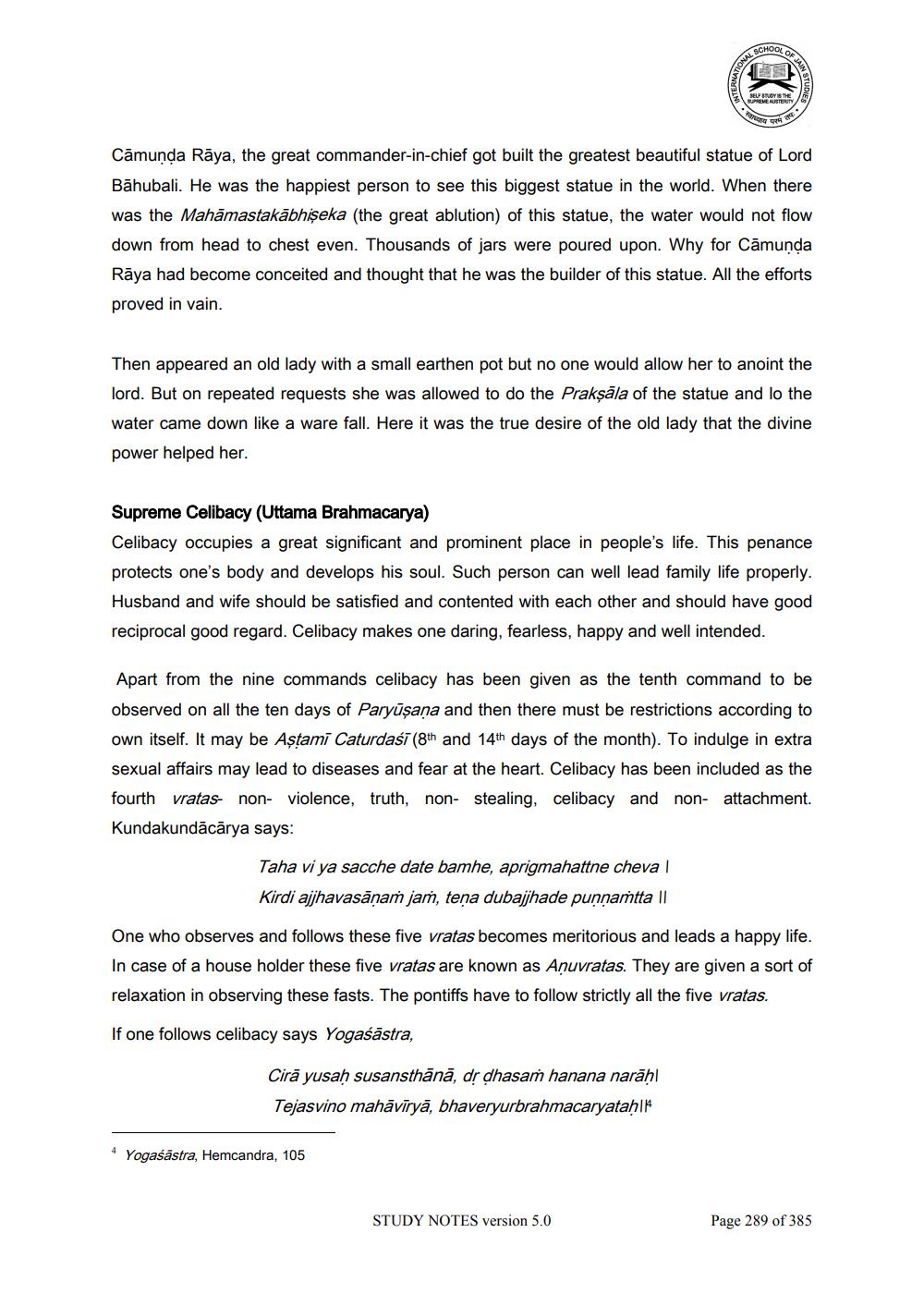________________
SELF BUDYIS THE
Cāmunda Rāya, the great commander-in-chief got built the greatest beautiful statue of Lord Bāhubali. He was the happiest person to see this biggest statue in the world. When there was the Mahāmastakābhişeka (the great ablution) of this statue, the water would not flow down from head to chest even. Thousands of jars were poured upon. Why for Cāmunda Rāya had become conceited and thought that he was the builder of this statue. All the efforts proved in vain.
Then appeared an old lady with a small earthen pot but no one would allow her to anoint the lord. But on repeated requests she was allowed to do the Prakşāla of the statue and lo the water came down like a ware fall. Here it was the true desire of the old lady that the divine power helped her.
Supreme Celibacy (Uttama Brahmacarya) Celibacy occupies a great significant and prominent place in people's life. This penance protects one's body and develops his soul. Such person can well lead family life properly. Husband and wife should be satisfied and contented with each other and should have good reciprocal good regard. Celibacy makes one daring, fearless, happy and well intended.
Apart from the nine commands celibacy has been given as the tenth command to be observed on all the ten days of Paryūṣana and then there must be restrictions according to own itself. It may be Astami Caturdaśī (8th and 14th days of the month). To indulge in extra sexual affairs may lead to diseases and fear at the heart. Celibacy has been included as the fourth vratas- non-violence, truth, non- stealing, celibacy and non- attachment. Kundakundācārya says:
Taha vi ya sacche date bamhe, aprigmahattne cheval Kirdi ajjhavasāņaṁ jań, tena dubajjhade punnaṁtta II
One who observes and follows these five vratas becomes meritorious and leads a happy life. In case of a house holder these five vratas are known as Anuvratas. They are given a sort of relaxation in observing these fasts. The pontiffs have to follow strictly all the five vratas.
If one follows celibacy says Yogaśāstra,
Cirā yusah susansthānā, dr dhasaṁ hanana narāḥl Tejasvino mahāvīryā, bhaveryurbrahmacaryataḥ|
4 Yogaśāstra, Hemcandra, 105
STUDY NOTES version 5.0
Page 289 of 385




